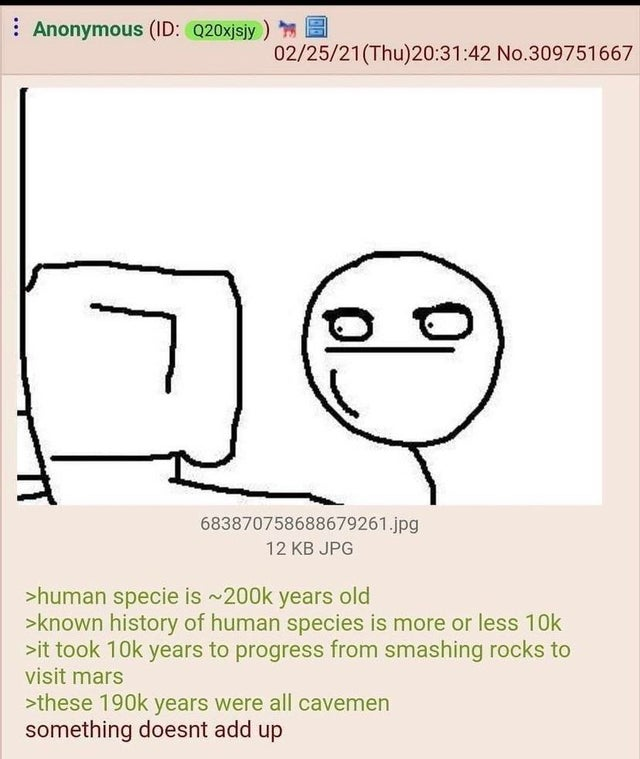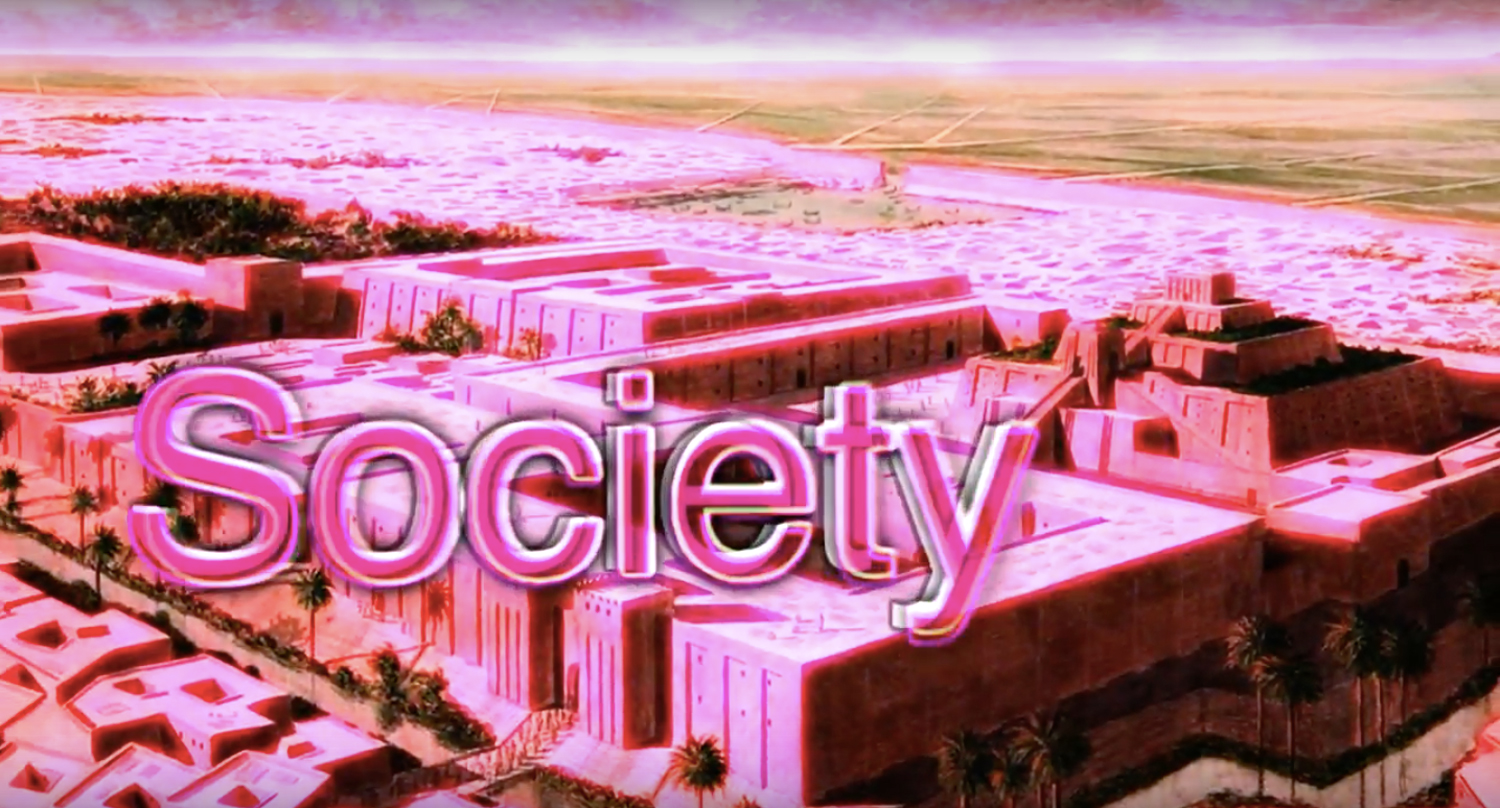Exponential growth, thats about all there is to it. Advancing from clacking rocks to hunting deer is actually already a huge advancement.
Those 190k years in caves however werent non-advancing. A lot of advancements happened over those years.
Fires, wheels, knot tying, ceramics, pottery, grains, hunting, animal husbandry, medicine, language, art, music, rope...
Also, 10k years is after we gained writing of various forms to store information.
Keep in mind thats at the stage of shit like egypt, the great pyramids, etc. We were waaaaay beyond "cavemen" at that point. We already had trade routes, cities, nations, countless languages, doctors, etc.
The big issue was before that point, all our forms of storing information were just not able to stand the test of time very well, is all. We stopped being "cavemen" way before that mark though.

